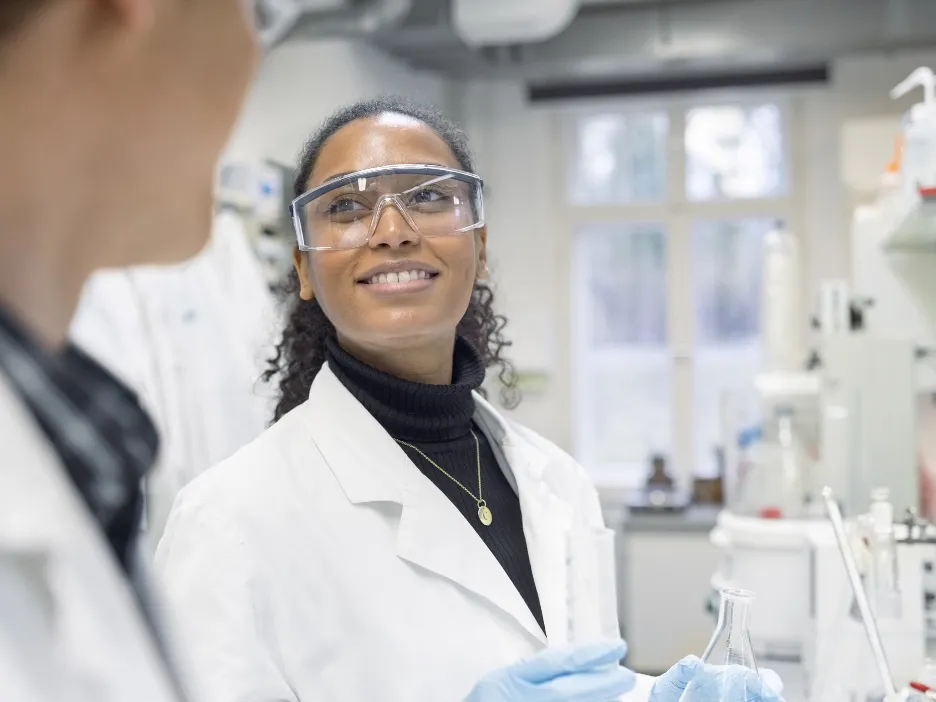Instructor Led In-Person Pharmaceutical Formulation and Processing Part 2
NSF
Teaching method
Subject areas
Pharmaceuticals, Qualified Person training, Formulation
Course level
Country

We teach you the important formulation requirements for each of these product types and how those requirements influence the performance of the medicine in the body. We also teach you the key processing steps in the production of these dosage forms, as well as critical quality attributes and critical process parameters. We also cover what can go wrong during the processing of medicinal products and the potential consequences to the safety, quality and efficacy of the medicine.
Once a new chemical entity has proved its potential in clinical studies, the challenge becomes formulating the compound into an effective medicine and manufacturing that medicine reliably so that safety, quality and efficacy are assured.
This course addresses two important activities of pharmaceutical formulation and processing, and provides key information on:
- How the physico-chemical attributes of the drug and the therapeutic indication influence:
- Route of administration
- Dosage form
- Assuring bioavailability
- Methods of manufacture of the major dosage forms
- Factors affecting suitability for use of the major dosage forms
The QP and pharmaceutical professionals must have a detailed understanding of these topics if they are to:
- Assist in the design and implementation of relevant and effective quality systems for dosage form manufacture
- Contribute to the risk assessment process for processing changes and unplanned deviations
- Assess the adequacy of cleaning strategies and validation activities
- Assess the potential impact of changes to physical and chemical attributes of starting materials
This course is approved by the Royal Society of Chemistry as suitable for its members’ continuing professional development.
NSF's A-Z of Sterile Products Manufacture course can be used as an alternative to the Pharmaceutical Formulation and Processing Part 2 training if you're working towards gaining QP eligibility and this course's dates and/or delivery method are not suitable. Courses cover the same core content. View dates.
Key Learning Objectives
On completion of this course delegates will know and understand:
- The principles of drug design and formulation and the impact of even minor modifications on bioavailability/bioequivalence
- The various processes involved in the manufacture of major dosage forms, e.g. tablets, capsules, oral liquids, topical liquids, creams and ointments, sterile products and inhalation products
- The Good Manufacturing Practice (GMP) issues and challenges for the QP to enable informed release decisions
- How to apply the knowledge to:
- Risk management
- Risk assessment
- Problem solving and decision making
- Auditing
- The principles of technology transfer and process validation
Course Outline
Part 2 - Parenteral Products
- Design, qualification and operation of cleanrooms
- Pharmaceutical water systems
- Methods of sterilization and aseptic processing
- Formulation considerations
- Major processing methods
- Critical process steps
- Risk-based decision-making and the role of the QP
- Key GMP requirements, Annex 1 and the contamination control strategy
Who Should Attend?
- The Aspiring Qualified Person
- The Pharmaceutical Technical Professional
Prerequisites
For any queries regarding entry requirements for both QP training and/or postgraduate qualifications please contact [email protected]
Additional information
NSF delivers instructor-led QP courses with blended training methods, in a mix of virtual and in-person courses. Please visit Training and Education | NSF for further information. If you cannot see your delivery method of choice, please contact [email protected].

Teaching provider
- NSF
- Tel: +44 (0)1751 434807
Useful information
Country: UK
Teaching method: Class/lab
Duration: 5 days
Cost: £3780.00 Excl VAT
Language: English
Related pages

Professional awards
Raise the bar. Gain recognition. Apply for a professional award.

Your career in chemistry
We offer support for members at every career stage. Whether you're just starting out or approaching retirement, we’re here to help.

Funding
We offer grants to support travel, events, outreach and research, personal support and guidance